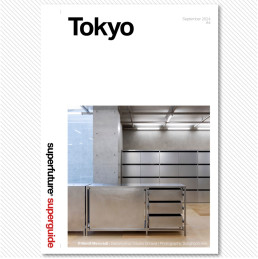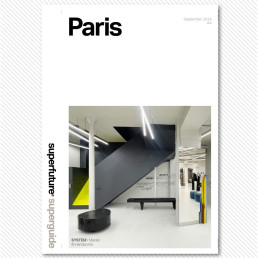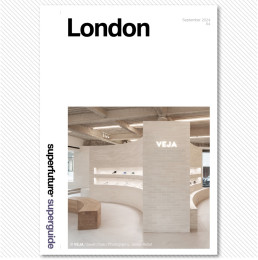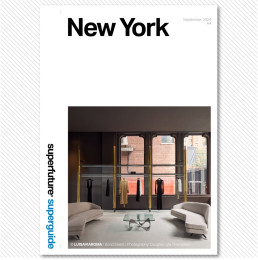
In the boomtown of boomtowns, life is all about superlatives, at least, from an outsider’s point of view. Dubai‘s lifestyle infrastructure offers plenty of surreal, glammed up places for those with a penchant for living large, but interestingly, there’s a much smaller and more grounded scene where the vibe is edgier and more heartfelt. Pitching in with a growing number of hospitality concepts with a cool factor is Lebanese entrepreneur Samer Hamadeh, the founder and managing partner of Aegis Hospitality. Hamadeh and his business partners have successfully launched venues in town, and Stereo Club – a bar, club and arcade rolled into one – arguably is the one that has resonated best with the locals. But a new contender for Dubai’s coolest hangout has emerged in recent months, and not surprisingly, it’s another concept by Hamadeh. Superfuture picks the entrepreneur’s brain, talking life in the affluent Emirate, his business, and obviously his new Tokyo-inspired venue.
You’re originally from Beirut. What are the similarities, or differences, between the Lebanese capital and Dubai? Actually, I’m originally from Baakline, a town in the Mount Lebanon range, a 45-minute drive south of Beirut. But…I only lived in Beirut during my ten-year stay in Lebanon. I would say the major difference is the purchasing power with that of Dubai being higher.
During the past two decades Dubai has evolved into a global city where every brand in the premium an luxury segments is represented. What’s your take on its meteoric rise, both as a resident and as an entrepreneur? I lived the meteoric rise. I found amazing opportunities here, and built great relationships during this period. Starting a business during the boom, and at a young age, made me believe I could do anything I wanted. It was an incredible feeling! As a resident of Dubai, I’m obviously happy to live in a city that other cities aspire to be. The standard of living is incredibly high, and obviously, the luxury lifestyle is only available to those who can afford it. As an entrepreneur, Dubai truly is a gateway to some of the planet’s biggest economies and countries that’ll significant markets in the future, so I’m definitely excited about having opportunities in India and China.
In which way has Dubai’s large contingent of expats influenced the local hospitality scene? There’s a majority expat community here which makes up about 80% of the population, but the great thing about Dubai is that the Emiratis themselves are well-educated and well-traveled, so they’re just as savvy as the expats when it comes to understanding and appreciating hospitality concepts. Mind you, some of the best brands here are homemade and created by Emiratis. That said, the major players in the bar and nightlife scenes are predominantly expats, and concepts such as Irish pub McGettigan’s or my own Stereo Arcade are very much expat-focused.
Your latest venue is Akiba Dori, a hybrid dining concept in Dubai Design District. Please talk us through the ideation of the venue? I tend to go mostly by gut instinct when it comes to concepts. It helps that I have a vivid imagination which is really why I don’t allow myself to become inspired by other venues or cities I visit. I’ve never been to Japan, but I’ve always admired Japanese culture and design. That’s actually where the idea started! I always ask myself a question and try to formulate an answer by way of a concept. In this case it was: what would a Japanese restaurant/bar look like if only Akihabara existed in Tokyo?
This question popped up in my mind because most Japanese bars and restaurants in Dubai offer a traditional look and menu. Also, I wanted to combine several concepts and brands in one space, not because I wanted to create a street theme, but because I feel today’s consumer can’t focus on one thing too long, so being immersed in a traditional concept can get boring quickly. You see, our lives now revolve around our cell phone, and we’re constantly exposed to messages, images, ads, and what not. Interestingly, we need a sensory overload to feel relaxed.
Could you elaborate on the profile of your clientele? Age-wise it’s 21+ in Dubai when it comes to drinking alcoholic beverages. I’d say for my restaurant it’s a fifty-fifty split between expats and Emiratis, and for my club it’s close to 99% expats.
You tapped Spanish designer Parolio Matos to create Akiba Dori‘s interior. How would you rate the importance of design within the realm of hospitality, and specifically in a market as dominated by prestige as Dubai? I got in touch with Parolio five years ago after seeing one of his projects online, and he has become one of my dearest friends. He’s someone who’s able to accept my best and worst ideas, and make them look pretty. Parolio calms me down when I become overexcited and force me to stay focused. On top of that, he truly understands engineering and that design needs to make sense – my biggest pet peeve with designers. He also understands that different projects require different design. We both don’t believe in overdoing it.
Dubai very much remains an upscale market. As a niche player, how do you view the trajectory of Aegis Hospitality in the coming years? I personally don’t believe in the upscale market business. It might be profitable in the short run, but I got into this business to let as many people as possible experience something new, through something that I created. That sensation is very special to me, and just making more money doesn’t add anything. As far as Aegis Hospitality is concerned, I’m not a corporate person and having a management is more for legal purposes than anything else. You know, the name could change tomorrow, and it wouldn’t make a difference to me as long as I can create concepts and roll them out.
How would you define define Dubai’s current stature in the Arab world? Dubai is a city borne out of a vision and innovation, and you can trace it back to the 1970’s during the reign of HRH Sheikh Rashid bin Saeed Al Maktoum. It’s impossible to consider its young history and not be in awe of what has been achieved here. I can’t really comment on how the Arab world perceives Dubai because I’m very disconnected from most of it, but Dubai certainly sees the rest of the Arab world as a source of inspiration, both good and bad.
Apart from your own venue, where do you like to hang out in Dubai? Any cool spots that you could recommend to likeminded first-timers? I actually spend most of my time in Dubai Design District, and I’ve been doing so for the past two years, before I opened Akiba Dori there. The mix of people and all the businesses there, it all blends well together. You could say that the creative vibe that I like is very much alive and kicking in that part of town!
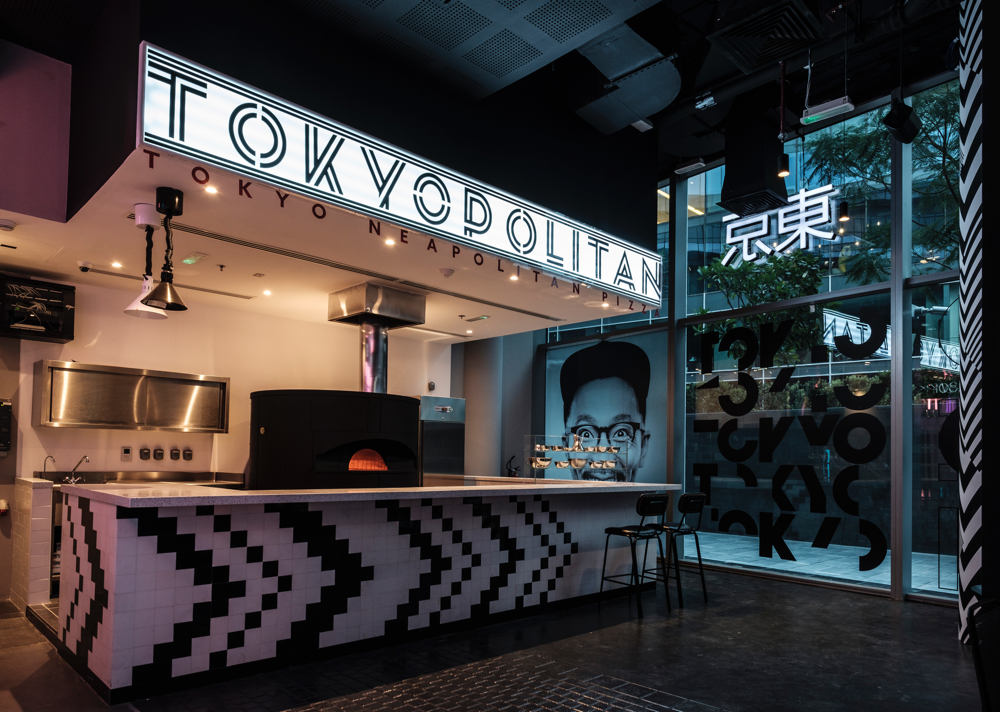
Publishers Note
Just to be clear – superfuture® is a design blog and not a political commentator. No surprise there. The scope of our content has always been global and borderless, however that can often mean covering projects in countries where we will not agree with the politics or actions of those countries. In a world that’s as screwed up as ever right now, the focus of our support is to those designers, architects and other creatives who aim to make the world a more liveable one – as opposed to people that try their hardest to destroy it. So if a project hits our desk and we like it based on its design credentials, we may choose to publish regardless of its location or creators nationality. superfuture® has always been inclusive and hopes for all current wars, aggression, violence, hate and extremism to end.


